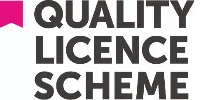Oxford Home Study Centre takes pride in supporting the professional development of ambitious learners from all backgrounds. Our most advanced Diploma in Facilities Management provides a comprehensive overview of the profession, covering a series of essential topics over the course of 16 self-paced modules:
Module 1 - Introduction to Successful Facility Management
The course begins with a broad overview of the facility management profession, examining the different types of organisations that rely on facility managers and general organisational structures. The skills and character traits of successful facility management personnel are discussed, along with the importance of confident leadership in the field of facilities management.
Module 2 - Operations and Maintenance
An introduction to physical infrastructure operations and maintenance follows in the second module, emphasising the importance of communication at the heart of successful facility management. Additional topics covered include inventory management, relocation and move management, plant operations, indoor air quality management and more.
Module 3 - Vendor Management & Outsourcing
The fundamentals of effective vendor management are presented and discussed in the third module, which also discusses the pros and cons of outsourcing. Essential considerations when planning outsourcing activities are examined, along with how to identify the right source of supply and the importance of appropriate vendor vetting.
Module 4 - Contracting and Types of Contracts
Module Four takes a look at the basics of contractual law, presenting several different types of contracts the facility manager must be familiar with. Subtopics covered include essential elements of a contract, purchase orders as contracts, lump sum contracts, unit price contracts and how to select the right type of contract for an agreement or transaction.
Module 5 - Project Management
A detailed overview of several essential project management concepts follows in the fifth module. Examples of which include the project life cycle, project selection criteria, the purpose of a project charter, project monitoring and quality control, risks planning in project management, the importance of effective communications management and more.
Module 6 - Managing Quality in Projects
Module Six examines the criticality of quality management in more detail, along with a series of tools and resources for tracking and measuring quality. Topics covered include determining the quality policy, applying benchmarking practices, the use of cost/benefit analysis, the objectives of a quality audit and the application of quality assurance.
Module 7 - Supervising Others
Workforce supervision is touched upon in the seventh module, which provides candidates with invaluable insights into the art of effective leadership. The benefits of becoming a better listener are presented and discussed, along with the value of confident questioning skills as a team leader and how to use probing techniques to extract information during conversation.
Module 8 - Managing Human Resources
Further human resource management concepts are discussed in Module Eight, which provides a detailed overview of the main functions and objectives of HRM activities. The creation of a code of ethics in HRM is also discussed, along with the primary responsibilities of those who work in HRM from a facilities management perspective.
Module 9 - Effective Team Management
A step-by-step guide to building and maintaining better teams is presented in Module Nine, which also highlights the benefits and potential drawbacks of working as a team. Additional topics covered include team contracts, establishing team norms and the criticality of building trust and respect between members of a team.
Module 10 - Organisational Skills
Organisational skills from a facilities management perspective are examined in Module 10. Key topics covered include strategies for working with mental models, achieving a shared vision, systems thinking, team learning, how to set a personal vision, the importance of defining values and the journey towards achieving personal mastery in any profession.
Module 11 - Motivating the Workforce
Module 11 outlines a series of tools, techniques and strategies for building and maintaining motivation, in order to drive output and efficiency. The different types of incentives and rewards are discussed, along with how to choose the most appropriate reward systems and how the appeal of any given incentive may differ significantly from one person to the next.
Module 12 - Communication Techniques in the Workplace
Module 12 takes a more in-depth look at communication techniques and the importance of communication skills in facilities management. Subtopics and concepts discussed include communication styles, dichotomies in theory, creating a positive self-image, the importance of assertiveness, self-attitude as a communication skill and more.
Module 13 - Conflict Management
The inevitability of workplace conflict is discussed in Module 13, which emphasises the potential benefits of healthy disputes and disagreements. Learners are presented with a breakdown of the conflict resolution process, a step-by-step guide to handling difficult conversations and a series of guidelines for establishing credibility and building trust.
Module 14 - Facility Emergency Preparedness
Common types of emergency situations a facility manager may encounter are presented and discussed in Module 14. Additional topics covered include emergency planning, categorizing emergencies, how to estimate probability of occurrence, developing an emergency plan, establishing a Facility Emergency Operations Centre (FEOC) and more.
Module 15 - Facility Security Management
Module 15 turns attention to security management, highlighting the importance of establishing defined physical security goals. Several essential security planning considerations are presented and discussed, along with the functions and objectives of vulnerability assessments, the responsibilities of on-site security personnel and more.
Module 16 - Sustainability and Use of Resources
Concluding the course, Module 16 explores the concept of sustainability from a business perspective. Candidates consider the importance of pursuing a sustainable future, how to set realistic sustainability targets, reporting and reviewing processes for more efficient resource utilisation and more.
Explore various free courses on our website. You can even take a start with one of our free Facilities Management courses today.


![<php echo $related_row['name']; ?>](https://www.oxfordhomestudy.com/images/subject/1693316538Advanced Diploma in Facilities Management QLS Level 5.webp)
![<php echo $related_row['name']; ?>](https://www.oxfordhomestudy.com/images/subject/1693316677Diploma in Facilities Management QLS Level 4.webp)
![<php echo $related_row['name']; ?>](https://www.oxfordhomestudy.com/images/subject/1693316801Certificate in Facilities Management QLS Level 3.webp)